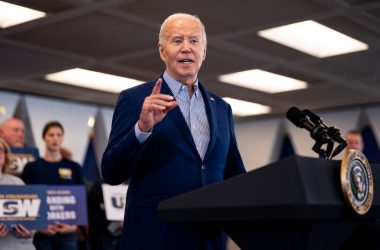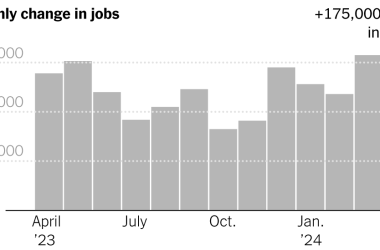Since the start of the pandemic, labor unions have been making significant progress. They have successfully organized previously nonunion companies like Starbucks and Amazon, and negotiated strong contracts for hundreds of thousands of workers. Last year, public approval for unions reached its highest level since the Lyndon Johnson presidency.
However, unions have not faced a major test on a national scale during this period. Potential strikes by railroad workers and UPS employees were avoided at the last minute. The impact of the ongoing writers’ and actors’ strikes has been mostly limited to Southern California.
But now, the United Automobile Workers (UAW) is embarking on a strike that has the potential to be a significant test for organized labor. The outcome of this strike, which demands substantial wage increases and concessions from the automakers, could establish unions as a powerful force in the economy and further spur the wave of organizing.
However, there are risks involved. A prolonged strike could harm the established U.S. automakers, General Motors, Ford, and Stellantis, and have a negative impact on the Midwest, which is politically crucial. If the union is perceived as overreaching or settles for a weak deal after a costly strike, public support could diminish.
According to Michael Lotito, a lawyer representing management, unions are currently seen as “cool,” but they risk losing popularity if strikes drag on for months in various states.
UAW President Shawn Fain has been framing the negotiations as a battle between the working class and corporate titans. He believes that a victory for the union would be a victory for ordinary workers against the rich.
Fain’s approach seems to resonate with UAW members, as thousands of them have participated in online sessions and expressed support for the fight.
One UAW member, Shunte Sanders-Beasley, sees the strike as an opportunity to regain lost concessions and inspire workers in other industries. History shows that successful autoworker strikes in the past have led to a wave of union organizing in related industries.
The current strike is also closely watched by workers in other sectors who have been inspired by labor actions in the past year.
While a successful strike could lead to higher wages and better conditions for autoworkers, critics argue that the union’s aggressive demands could discourage businesses from investing in the U.S. or make them less competitive internationally.
Newly elected UAW President Shawn Fain is urged to consider the long-term financial viability of the automakers and strike a balance that benefits both workers and the companies.
A long strike without significant gains could harm the UAW’s future and disillusion workers. The union must avoid winning battles but losing the war. Additionally, there is a risk that companies may shift production to Mexico or use automation and locate new plants in states with weaker unions.
However, federal subsidies for domestic electric vehicle production and the Biden administration’s support may limit the extent of outsourcing. The UAW’s ability to organize new plants, particularly in the South, will be crucial in protecting the interests of workers.
Union leaders must also be mindful of maintaining credibility with workers. Making strong demands and settling for subpar deals can demoralize members. The previous UAW administration has faced criticism for accepting concessionary contracts.
The current UAW leadership’s emphasis on class struggle seems to have garnered widespread public support in the faceoff with the automakers. A Gallup poll shows that the majority of the public supports the autoworkers, suggesting that the context may be different from previous labor disputes.
Unique Perspective: The strike by autoworkers and the broader labor movement represents a critical moment in the ongoing struggle for workers’ rights and fair wages. As unions gain momentum and public approval, their actions have the potential to shape the future of labor in America. The outcome of this strike will not only impact the automotive industry but could also serve as a catalyst for organizing efforts in other sectors. It is a high-stakes gamble for both the workers and the companies involved, with the potential for significant economic consequences. The power balance between labor and capital is being tested, and the decisions made during this strike will have lasting implications for workers and the future of the labor movement.










